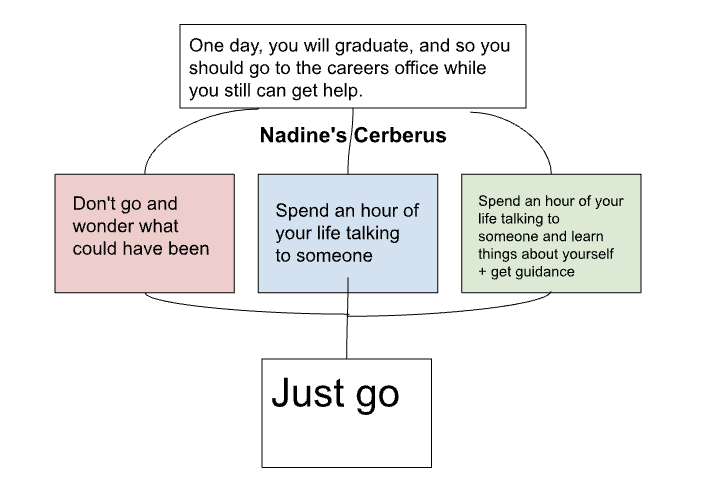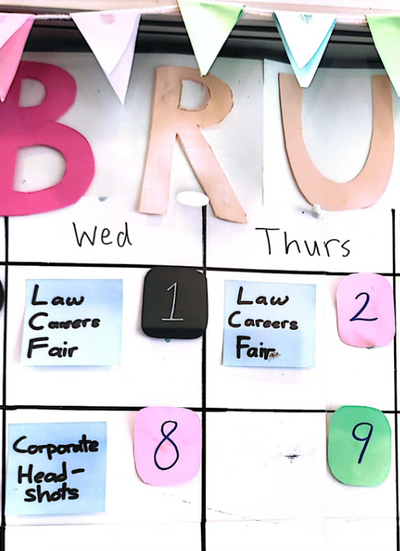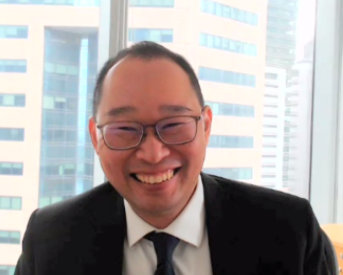
Dechert is a global law firm that focuses on high-stakes matters in sectors with the greatest complexities, intricacies and regulatory demands. Dechert has been involved in numerous corporate deals throughout the world, as well as a major player in the fields of financial services and investment management and litigation and arbitration. To date, they have 28 offices all over the world, including Singapore.
Here we interview Dean Collins, the managing partner of the firm’s Singapore office.
J: Could you tell us about your firm?
Dean: We are a global law firm with an entrepreneurial, client-focused culture. We have our roots in Philadelphia and we were founded in 1875. We are a firm 900 lawyers strong, with a third of our lawyers outside the United States. Our core strengths are antitrust/competition, banking, corporate, employee benefits and executive compensation, financial restructuring, financial services and investment management, global finance, intellectual property, international arbitration, international trade, litigation, private client, pro bono, real estate and tax law.
J: What is interesting about your firm?
Dean: We are a very special law firm with fantastic mentoring and training programs (both formal and informal). But what stands out the most to me is our amazing people. When we hire lawyers, we don’t just give someone a job, we consider them an integral part of the firm.
Our pro bono effort is an indication of the quality of the people we hire. We frequently rank amongst the very top law firms in terms of our pro bono commitments. For example, The American Lawyer’s 2017 Pro Bono Survey ranked us 1st internationally amongst Am Law 200 firms for our commitment to pro bono. It takes very special people to want to spend time helping those less fortunate than themselves on top of their already hectic work schedules.
J: What do you think is the most unique point about your firm?
Dean: For many law firms, the focus is on earning a lot of money, but this is not the case at Dechert. We focus more on bonding and fostering our collaborative culture among our lawyers, and about promoting the values of the firm.
We have a genuinely collaborative, values-driven, culture. With regard to the many projects that I work on, I often work with our firm’s lawyers in at least seven of our other offices around the world. The partners in these other offices treat my clients as importantly as I do and as importantly as their own clients, which is difficult to achieve because many law firms are filled with alpha personalities. Hence, the collaborative culture is very unique.
J: What makes working in an international firm different?
Dean: It is important for us at Dechert to have offices in places where we can best serve our key clients and as a firm, we are much stronger for having global scale. This enables us to collaborate on cross-border work that is challenging, complex and of distinctive value to our clients. There is a balance, which I think we get just about right in our Singapore office, between not operating as an “island” where we do our own thing without any relevance to the rest of the firm and not being like a local law firm, where if you want to do cross-border work, you will probably only do the Singapore aspect of the transaction. However, at Dechert, we interact with many of our colleagues around the world. For example, in some of the investment fund transactions that I work on, we may need to deal with the legal and regulatory requirements of 100 investors from many different countries, and we will need input from our colleagues from other offices in order to satisfy those requirements.
In terms of the responsibility for a lawyer in a small office like ours, there is no hiding behind senior associates or partners. Our lawyers get to work directly with our partners and interact with our clients from Day 1. It’s a different cultural mindset when working in a large global firm.
J: What kind of people do you think would fit in at Dechert?
Dean: We want to see the potential early on, as an intern, to get a sense of what their technical skills are. We look for certain values, and we want our lawyers to encapsulate those values. We like people who want to work hard, who have good interpersonal skills. We want our lawyers to not only give legal advice but also business advice. People who are pragmatic, intelligent, with high emotional intelligence.
J: What sort of training is available for the associates?
Dean: The firm is committed to developing and supporting talent through both informal and formal mentorship and training. Hands-on training is ubiquitous — the work that our associates produce is often looked at by senior lawyers, who will be giving advice and comments. We also provide formal, core competency training through our Critical Skills Institute which focuses on leadership, communication, client relations and management skills. For example, next month, we are having a business planning session for our senior associates in Asia where they will sit down with an external consultant and learn about how to develop their own business plan, which is important if you want to develop your own legal practice.
J: What was your experience like as a fresh graduate / university student?
Dean: I was one of four children and was the only one that went to university. Back in those days, instead of working like my siblings, I wanted to study even though there was no familial pressure to go to University. So I worked hard and got into Cambridge. It was a great experience, filled with wonderful lecturers with big personalities and being able to hear great stories from other students and professors.
Was what I learnt as a student very relevant as a lawyer? Substantively, no. However, the critical skills, questioning, thinking, knowing how to pick up case law and getting answers was important.
J: Can you give a percentage of how much you learnt in law school that you can apply today?
Dean: Sometimes in the course of a transaction, there is stuff I learnt and haven’t used in 15 years and suddenly it comes to mind and has relevance to what we’re trying to achieve for the client.
I actually spend more time talking and reading about U.S. legal issues, which I’m not licensed to practice, than I do with UK legal issues — obviously with the support of U.S. qualified colleagues! However, it is the mindset and the ability to think critically, pragmatically and laterally, that in my mind is the hallmark of a good lawyer.
J: Do you have any advice for law students, for instance in terms of internships?
Dean: You should treat it as an extended job interview. You should go in every day on the basis that it is a job interview. You should not be afraid to ask questions. I was given two pieces of advice as a young lawyer, which is applicable to interns and law students.
First, treat the opportunity as a sponge. Take in all that you can, and use it to boost your learning. Even if you do not like the environment from Day 1, just try to find the learning opportunities in every single day. I still like to think I’m learning new stuff as I go along.
Second, when given a bit of work, think about it as advice you are giving to a client. I always say to my associates, write the advice or document as though it is intended for clients, even though it is intended for my review first. You should never ask me a question that you can find the answer to as that is just lazy lawyering. Always give some thought to the answers to any follow-up questions I’m likely to ask as that is what your clients will expect of you in due course.
J: What about academic advice?
Dean: Go out and do these other things that you may not have the chance to while you are still young. Run a half-marathon, go out and have fun, travel the world. For me, I worked hard but not too hard. I got a 2:1, which is very respectable. I could possibly have gotten first class honours, if I slogged away for three years. However you are probably going to work hard for the rest of your lives, so it’s better to do something meaningful with your life now.
It’s definitely not easy to juggle these interests and hobbies but it is possible. I value the different interests that people talk about when I interview them. It’s probably better to travel and learn about the world than just getting drunk on a beach in Thailand.
You can also speak to your student councillors to find out what your career path could be like. There is an abundance of information that is available that was not so accessible when I was younger.
If I may use an anecdote here, I once had a friend while I was in Cambridge who studied history. One day, I found out that he was performing in a student production of “Fiddler on the Roof” and I had no idea he had theatrical skills in him. That guy is Sacha Baron Cohen, now a world-famous comedian. Another guy I knew at Cambridge played in a student band and eventually became the bass player of Radiohead. Explore your interests. It may not lead you to fame or fortune but there are often great opportunities to try things whilst you are a student and you should take those up.
J: Do you have any words for people who are drowning in schoolwork and wondering if Law is the correct path for them?
Dean: A friend of mine, a woman who was also a lawyer, committed suicide last year. I think the world is changing, awareness of mental illness is now much more prominent. Things that drive people to the edge were always a massive taboo but thankfully that seems to be changing.
People who feel they are drowning should probably realise that other people are also drowning and in the same position as them. They should also realise that there are people who can help to drag them out of the water.
I always tell my team, reach out for help if you need it. If you are drowning, let me know. Finding that balance between work and family life and play is a real challenge, but you should never forget it. It should be a genuine priority, over and above everything else.
People just need to realise that there is nothing to be ashamed of. If people are not ashamed of going to a doctor for a sore leg, they should not be ashamed to get help for mental health issues.








